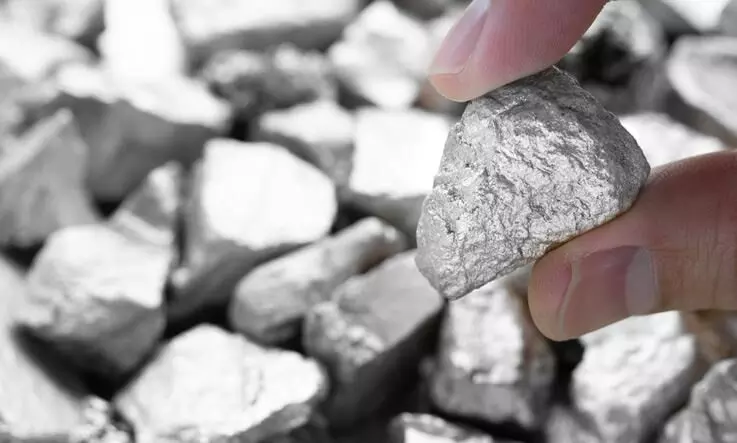
Scientists discover crucial rare earth minerals in Andhra Pradesh
text_fieldsRepresentational.
Hyderabad: Scientists have discovered the presence of Light Rare Earth Elements (REE) in Andhra Pradesh's Ananthapur district. REE, found by researchers of CSIR-National Geophysical Research Institute (NGRI), are main components in many electronic devices (including cell phones) and various industrial applications, including medical technology, aerospace and defence, PTI reported.
The said group of elements include Lanthanum, Cerium, Praseodymium, Neodymium, Yttrium, Hafnium, Tantalum, Niobium, Zirconium, and Scandium.
Senior principal scientist in NGRI PV Sunder Raju told PTI, "We found strong anomalous (enriched) Light Rare Earth Elements (La, Ce, Pr, Nd, Y, Nb and Ta) in whole rock analyses, confirming the minerals hosting these REE."
Rare earth elements (REE) are 15 elements referred to as the lanthanide and Actinide series in the periodic table of elements, together with scandium and yttrium.
Sundar Raju said that making permanent magnets is the largest and most important end use for REEs. Permanent magnets are essential to modern electronics used in cell phones, televisions, computers, automobiles, wind turbines, jet aircraft and many other products.
REEs are widely used in high technology and "green" products due to their luminescent and catalytic properties.
"To reach net zero, Europe will require up to 26 times the amount of rare earth metals in 2050 compared to present demand. Demand is also increasing because of digitalisation," Sundar Raju said.
A study funded by the Council of Scientific and Industrial Research (CSIR-India) under a project called SHORE (Shallow subsurface imaging Of India for Resource Exploration) led to the discovery of REEs.
According to Sundar Raju, scientists resorted to a multi-disciplinary approach to the SHORE project.
Under this project umbrella, our focussed objective was 'Detailed understanding of RM (Rare Metals)-REE metallogeny, assessment of resources and identifying economically potential sites, especially from the carbonatite-syenite complexes of Andhra Pradesh'," he said.
He also said that deep drilling for more than at least one km would ascertain the consistency of REE's presence in depths.






















